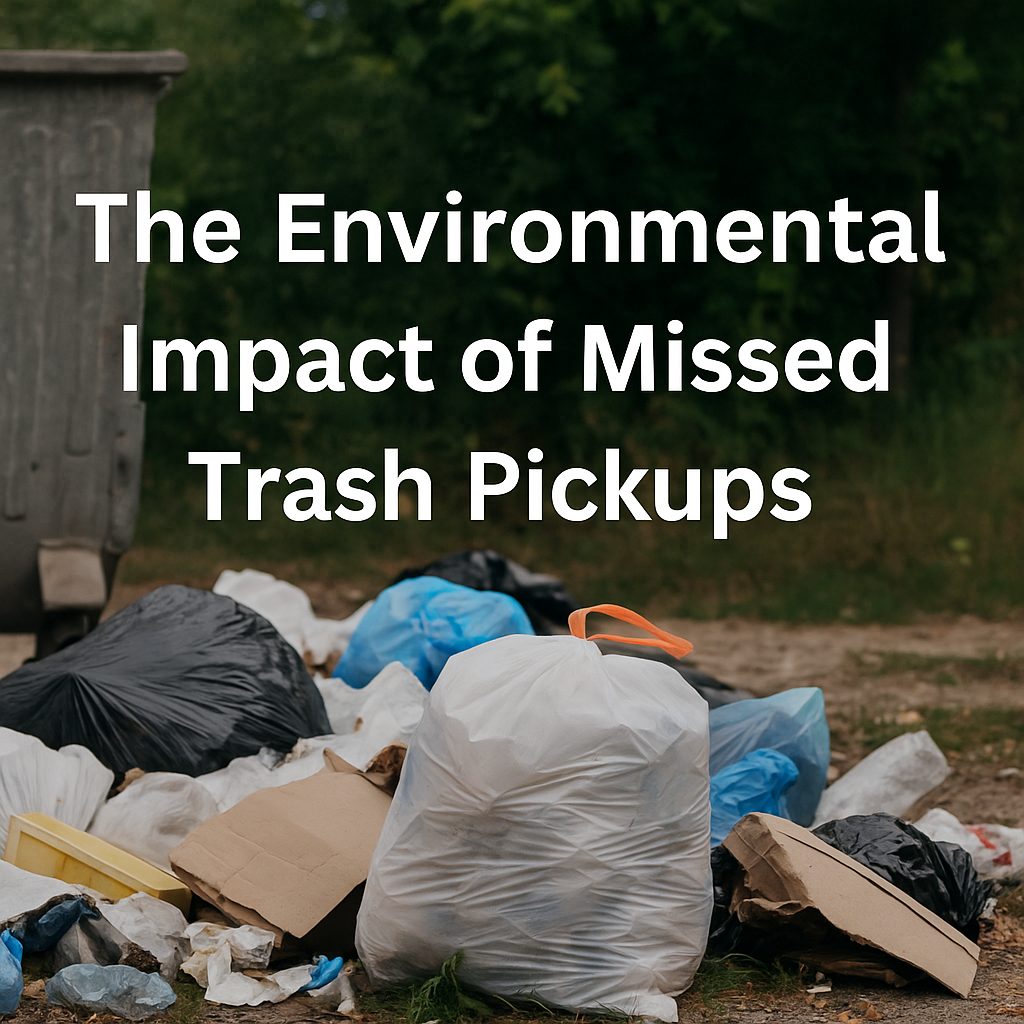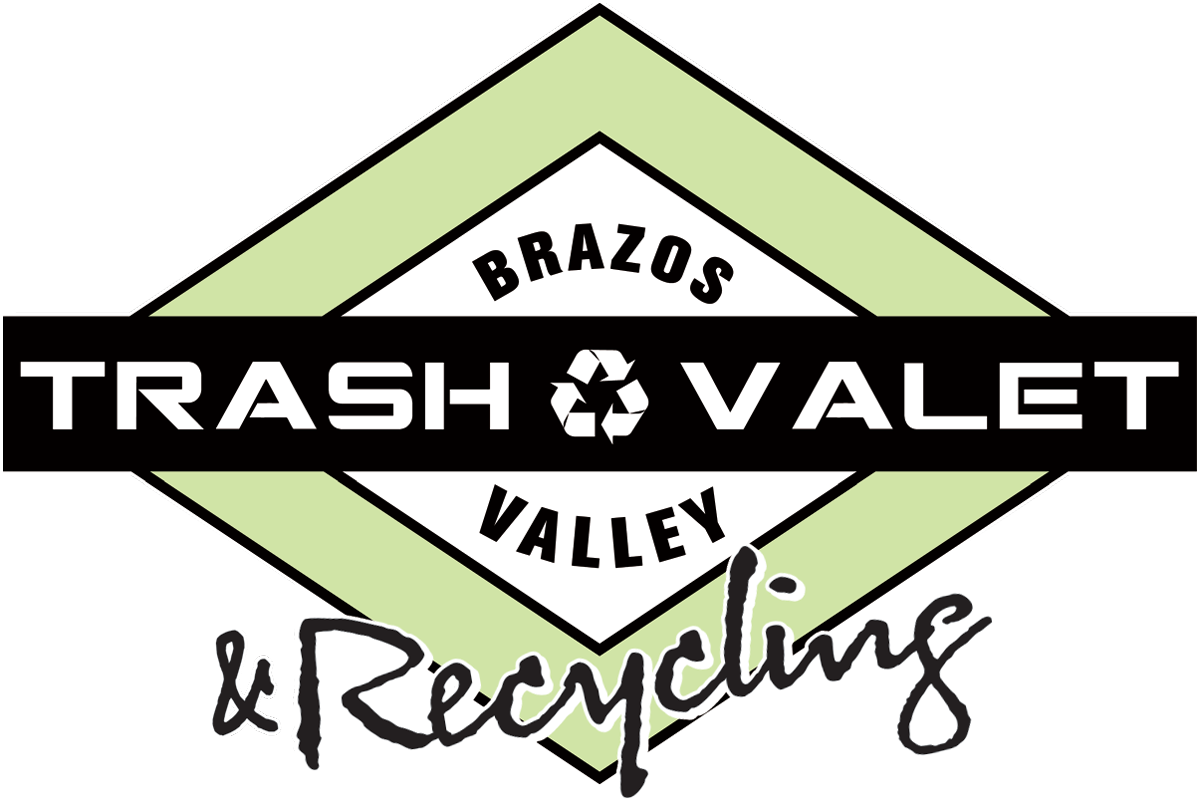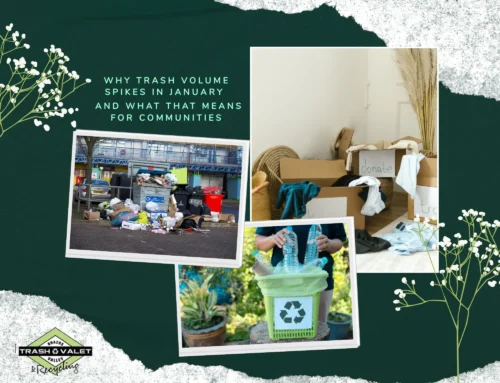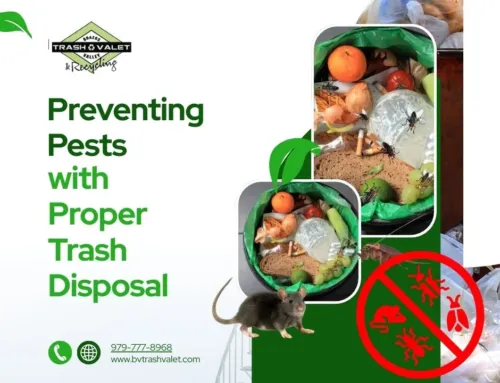The Environmental Impact of Missed Trash Pickups
Missed trash pickups might seem like a small inconvenience, but they can have serious environmental consequences. When waste is left sitting for extended periods, it not only affects cleanliness and sanitation but also has a direct impact on our local ecosystems.

Increased Risk of Litter and Pollution
When garbage sits uncollected, wind, rain, and animals can scatter debris into streets, storm drains, and waterways. This litter can harm wildlife, clog drainage systems, and contribute to water pollution. Items like plastic bags, bottles, and food wrappers often end up in rivers and oceans, where they can persist for decades.
Attraction of Pests
Uncollected trash is a magnet for rodents, insects, and other pests. These pests can spread disease, damage property, and further disrupt local ecosystems. The more waste that accumulates, the greater the risk of infestations that can be difficult and costly to manage.
Air Quality Concerns
As garbage sits, organic waste begins to decompose, releasing unpleasant odors and potentially harmful gases like methane. Methane is a powerful greenhouse gas that contributes to climate change. Even a short delay in waste collection can increase emissions if large amounts of organic material are present.
Community Health and Safety
Missed pickups can lead to overflowing trash bins and piles of waste that create unsanitary conditions. This not only affects the look and smell of a neighborhood but also increases health risks for residents. The longer the waste remains uncollected, the more it impacts community well-being.
How to Reduce the Impact
While occasional missed pickups may be unavoidable due to weather or operational issues, residents can help reduce environmental impacts by:
- Keeping trash securely bagged and covered to prevent scattering.
- Reducing waste through recycling and composting.
- Reporting missed pickups promptly to waste management providers.
The Bottom Line
Missed trash pickups are more than just an inconvenience—they can contribute to litter, pollution, pest problems, and climate change. By understanding the environmental consequences and taking preventive steps, communities can protect their neighborhoods and the planet.
Share This Story, Choose Your Platform!
The Environmental Impact of Missed Trash Pickups
Missed trash pickups might seem like a small inconvenience, but they can have serious environmental consequences. When waste is left sitting for extended periods, it not only affects cleanliness and sanitation but also has a direct impact on our local ecosystems.

Increased Risk of Litter and Pollution
When garbage sits uncollected, wind, rain, and animals can scatter debris into streets, storm drains, and waterways. This litter can harm wildlife, clog drainage systems, and contribute to water pollution. Items like plastic bags, bottles, and food wrappers often end up in rivers and oceans, where they can persist for decades.
Attraction of Pests
Uncollected trash is a magnet for rodents, insects, and other pests. These pests can spread disease, damage property, and further disrupt local ecosystems. The more waste that accumulates, the greater the risk of infestations that can be difficult and costly to manage.
Air Quality Concerns
As garbage sits, organic waste begins to decompose, releasing unpleasant odors and potentially harmful gases like methane. Methane is a powerful greenhouse gas that contributes to climate change. Even a short delay in waste collection can increase emissions if large amounts of organic material are present.
Community Health and Safety
Missed pickups can lead to overflowing trash bins and piles of waste that create unsanitary conditions. This not only affects the look and smell of a neighborhood but also increases health risks for residents. The longer the waste remains uncollected, the more it impacts community well-being.
How to Reduce the Impact
While occasional missed pickups may be unavoidable due to weather or operational issues, residents can help reduce environmental impacts by:
- Keeping trash securely bagged and covered to prevent scattering.
- Reducing waste through recycling and composting.
- Reporting missed pickups promptly to waste management providers.
The Bottom Line
Missed trash pickups are more than just an inconvenience—they can contribute to litter, pollution, pest problems, and climate change. By understanding the environmental consequences and taking preventive steps, communities can protect their neighborhoods and the planet.




